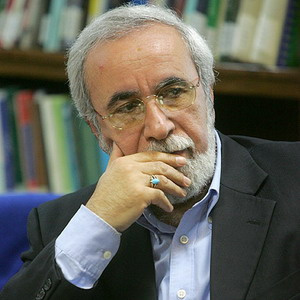Iranian Presidential Elections and the Future of Iran’s Nuclear Program
When it comes to Iran’s nuclear program, presidential candidates only use different tactics. By Sabah Zanganeh.

The significance of Iran’s nuclear program and its negotiations with six world powers brings up a question: with a possible breakout in negotiation, how will the tenth administration manage country’s nuclear program?
Iranian Diplomacy has discussed the issue with Dr. Sabah Zanganeh, political analyst:
To a large extent, nuclear negotiations with Iran depend on the next administration, so it seems that Western officials and Javier Solana, EU Commissioner on Foreign Relations, are circumspect in treating Iran’s nuclear case. That is, they don’t want to loosen ties with the incumbent administration and meanwhile they try not to lose possible chances of talks with the tenth administration which will come to power this summer. However, it seems that all Iranian political camps have a congruous approach towards Iran’s nuclear rights. The minimum of our rights are indisputable, but the ceiling may vary among statesmen. No potential president can retire from Iran’s minimum demands and this is something Western diplomats should keep in mind when negotiating with the Iranians.
Negotiations are still the first option, but it seems that West is going to freeze diplomatic initiatives until the elections results show who the next president is. Currently, there are talks over acknowledging Iran’s right to uranium enrichment. Future negotiations will detail over this right most probably. At the present time chances of passing another resolution against Iran is not on the table and all the reports about a new bill appear to be more of a psychological warfare.
Presidential candidates and nuclear negotiations
If there is any difference between major presidential candidates over nuclear negotiations, that is minimal and merely relates to the level of tactics, not strategies. While one candidate prefers media diplomacy, another welcomes nuclear negotiations. One may prefer to have bilateral talks with the United States and another may want to engage with major world powers collectively.
Iranian Diplomacy has discussed the issue with Dr. Sabah Zanganeh, political analyst:
To a large extent, nuclear negotiations with Iran depend on the next administration, so it seems that Western officials and Javier Solana, EU Commissioner on Foreign Relations, are circumspect in treating Iran’s nuclear case. That is, they don’t want to loosen ties with the incumbent administration and meanwhile they try not to lose possible chances of talks with the tenth administration which will come to power this summer. However, it seems that all Iranian political camps have a congruous approach towards Iran’s nuclear rights. The minimum of our rights are indisputable, but the ceiling may vary among statesmen. No potential president can retire from Iran’s minimum demands and this is something Western diplomats should keep in mind when negotiating with the Iranians.
Negotiations are still the first option, but it seems that West is going to freeze diplomatic initiatives until the elections results show who the next president is. Currently, there are talks over acknowledging Iran’s right to uranium enrichment. Future negotiations will detail over this right most probably. At the present time chances of passing another resolution against Iran is not on the table and all the reports about a new bill appear to be more of a psychological warfare.
Presidential candidates and nuclear negotiations
If there is any difference between major presidential candidates over nuclear negotiations, that is minimal and merely relates to the level of tactics, not strategies. While one candidate prefers media diplomacy, another welcomes nuclear negotiations. One may prefer to have bilateral talks with the United States and another may want to engage with major world powers collectively.

